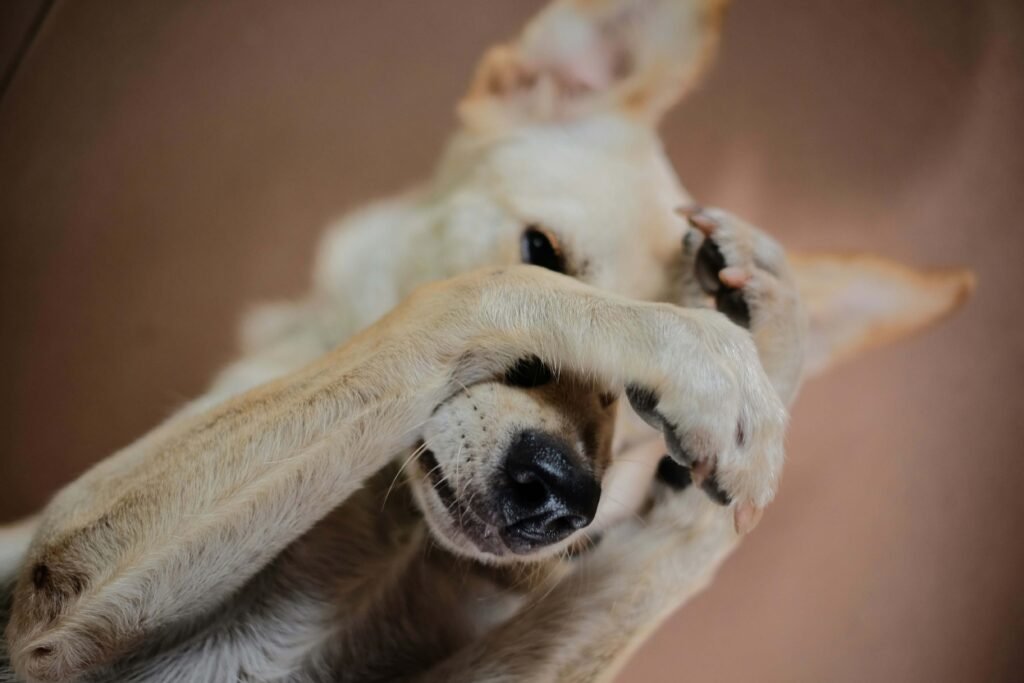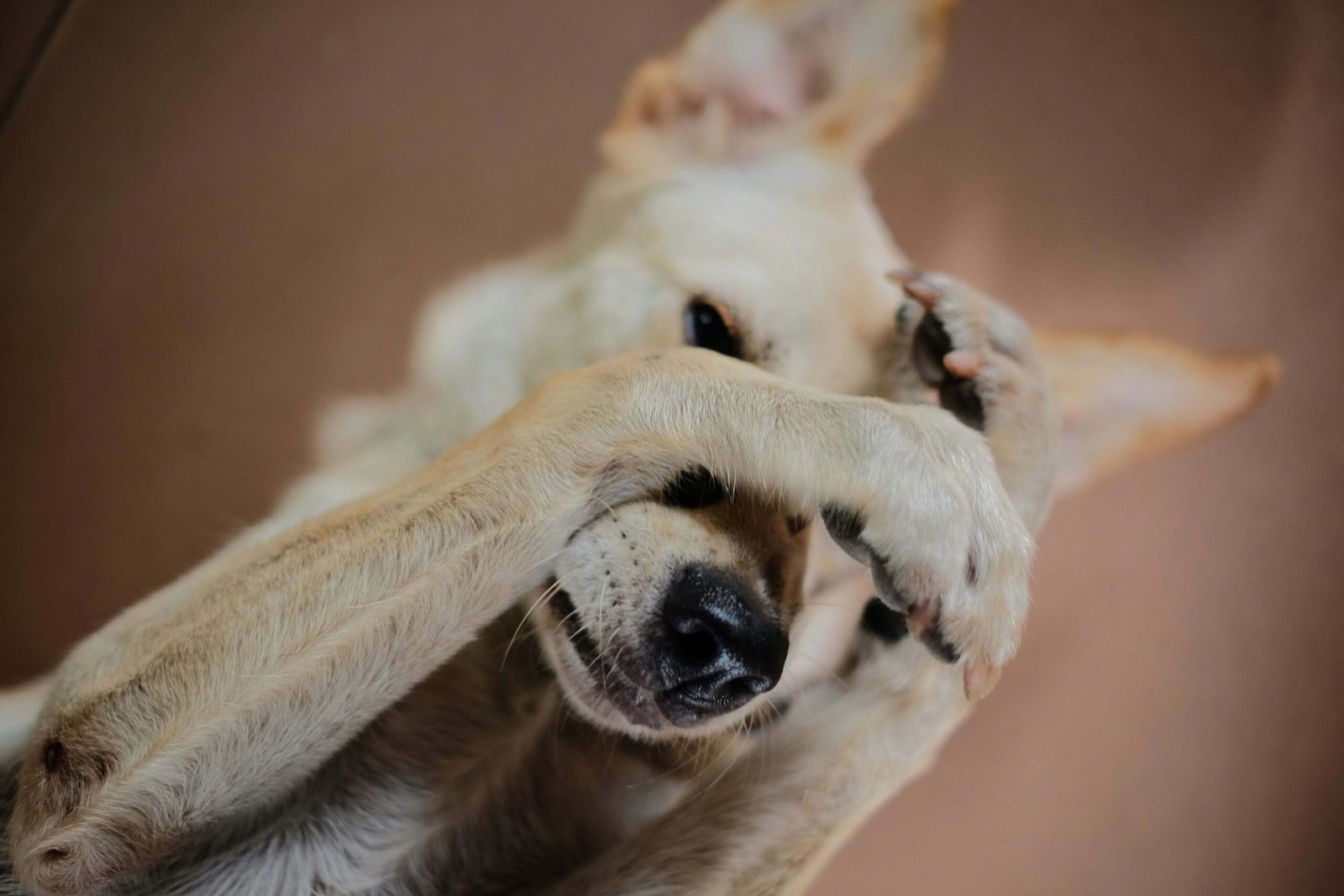Understanding Dog Teeth Chattering: What Every Pet Owner Should Know
If you’ve ever noticed your dog’s teeth chattering, you might have found yourself wondering what it means. This seemingly peculiar behavior can range from completely normal to a potential sign of an underlying issue. Whether you’re a new pet owner or someone who has shared their life with dogs for years, understanding the nuances of this behavior is crucial. In this blog post, we’ll explore the reasons behind dog teeth chattering, its implications, and how you can address it if necessary. By the end, you’ll be equipped with the knowledge to ensure your furry friend stays happy and healthy.
Common Causes of Dog Teeth Chattering
Dog teeth chattering can stem from a variety of causes, some harmless and others requiring attention. Below, we outline the most common reasons why your dog might exhibit this behavior:
Cold Temperatures
Just like humans, dogs can shiver or chatter their teeth when they are cold. This is especially common in smaller breeds or those with thin coats.Excitement or Anticipation
Some dogs chatter their teeth when they are overly excited or anticipating something pleasurable, such as a treat or playtime.Dental Issues
Dental pain or discomfort, such as gum disease or a broken tooth, can cause a dog to chatter its teeth involuntarily.Neurological Conditions
Certain neurological disorders can lead to muscle tremors, including teeth chattering, as a symptom.Smelling Intense Scents
Dogs have an incredible sense of smell, and when they encounter a particularly strong or intriguing scent, they may chatter their teeth as part of their sensory response.
Understanding these causes can help you determine whether your dog’s teeth chattering is benign or if it warrants a visit to the vet. Observing your dog’s behavior closely will provide valuable clues.
When to Be Concerned About Dog Teeth Chattering
While teeth chattering isn’t always a cause for alarm, there are certain scenarios where it could indicate a more serious issue. Here’s a breakdown of when you should take action:
Persistent Chattering
If your dog’s teeth chattering occurs frequently or for extended periods, it may signal an underlying health problem.Accompanying Symptoms
Look out for additional signs such as drooling, lethargy, or changes in appetite, which could point to dental or systemic issues.Behavioral Changes
If your dog seems unusually anxious, aggressive, or withdrawn alongside the chattering, it might indicate stress or discomfort.Recent Trauma or Injury
If your dog has recently experienced an injury, especially to the mouth or head, teeth chattering could be a symptom of nerve damage.Unusual Timing
Teeth chattering that happens randomly, without any apparent trigger, should be investigated further by a veterinarian.
Being vigilant about these warning signs ensures that you can address any potential problems early on. Remember, your dog relies on you to advocate for their health and well-being.
Check this guide 👉Remove Tartar from Your Dogs Teeth: Best 7 Expert Tips!
Check this guide 👉Dog Toothache Symptoms: Best 7 Health Tips!
Check this guide 👉Dog Tooth Abscesses: Best 7 Expert Tips!

Possible Causes of Dog Teeth Chattering | What You Can Do |
|---|---|
Cold Weather | Provide a warm blanket or coat. |
Excitement or Anticipation | Calm your dog with gentle reassurance. |
Dental Issues | Schedule a dental check-up with your vet. |
Neurological Conditions | Consult a specialist for diagnosis and treatment. |
Strong Smells | Allow your dog to investigate safely. |
Tips for Managing Dog Teeth Chattering
If your dog’s teeth chattering doesn’t seem to be linked to a serious issue, there are steps you can take to manage or reduce the behavior. Here are some practical tips:
Provide Warmth
For cold-related chattering, ensure your dog has access to cozy bedding and warm clothing during colder months.Create a Calm Environment
Reduce excitement triggers by maintaining a peaceful atmosphere, especially if your dog tends to chatter when overstimulated.Regular Dental Care
Brush your dog’s teeth regularly and provide dental chews to prevent issues like tartar buildup or gum disease.Monitor Scent Exposure
If your dog chatters while sniffing, avoid exposing them to overly strong or artificial scents that could overwhelm their senses.Consult a Professional
If you’re unsure about the cause, schedule a vet visit to rule out any medical conditions.
By implementing these strategies, you can help minimize unnecessary teeth chattering and ensure your dog remains comfortable and content.
Preventive Measures to Keep Your Dog Healthy
Prevention is always better than cure, and taking proactive steps can reduce the likelihood of excessive teeth chattering. Consider the following measures:
Routine Vet Check-Ups
Regular veterinary visits can catch potential health issues early before they escalate.Balanced Diet
Feed your dog a nutrient-rich diet to support overall health, including strong teeth and gums.Mental Stimulation
Engage your dog with toys and activities to keep their mind sharp and reduce stress-related behaviors.Safe Outdoor Exploration
Supervise outdoor time to prevent exposure to harmful substances or extreme temperatures.Training and Socialization
Proper training helps your dog manage excitement levels and reduces anxiety-related chattering.
Taking these preventive steps not only addresses teeth chattering but also promotes your dog’s long-term well-being.
Behavioral Triggers of Dog Teeth Chattering
Dog teeth chattering can often be linked to behavioral triggers, which are typically harmless but worth understanding. Here are some common scenarios where behavior plays a role:
Playful Excitement
Dogs may chatter their teeth during playtime when they’re overly excited or anticipating fun activities.Meeting New People or Animals
The thrill of meeting someone new, whether human or animal, can sometimes trigger teeth chattering as a response to heightened emotions.Reward Anticipation
When your dog knows a treat or reward is coming, their excitement might manifest as teeth chattering.
Understanding these behavioral triggers can help you differentiate between normal excitement and potential health concerns. Always observe the context in which the chattering occurs to better interpret your dog’s emotions.
Environmental Factors That Influence Teeth Chattering
The environment your dog is exposed to can significantly influence their tendency to chatter their teeth. Here are some environmental factors to consider:
Extreme Weather Conditions
Both cold and hot weather can cause discomfort, leading to teeth chattering as a physical response.Loud Noises or Sudden Changes
Thunderstorms, fireworks, or unexpected disruptions can startle your dog, causing stress-related chattering.Unfamiliar Surroundings
Moving to a new home or visiting an unfamiliar place might make your dog anxious, resulting in teeth chattering.
By identifying and addressing these environmental factors, you can create a more comfortable and stable setting for your dog. Reducing stressors will not only minimize teeth chattering but also improve their overall well-being.
Signs That Teeth Chattering May Be Linked to Health Issues
While teeth chattering is often benign, certain signs can indicate that it’s linked to an underlying health issue. Pay attention to these red flags:
Excessive Drooling
If your dog is drooling excessively alongside teeth chattering, it could point to oral pain or discomfort.Difficulty Eating
Reluctance to eat or chewing on one side of the mouth may suggest dental problems like infections or broken teeth.Visible Swelling or Discoloration
Swollen gums or discolored teeth are clear indicators that a vet visit is necessary.Lethargy or Depression
A sudden change in energy levels or mood can signal systemic issues beyond just dental health.Frequent Head Shaking
If your dog shakes their head repeatedly along with teeth chattering, it could indicate ear or neurological problems.
Recognizing these signs early can help prevent minor issues from escalating into serious conditions. Regular monitoring and timely veterinary care are essential for maintaining your dog’s health and happiness.
Frequently Asked Questions About Dog Teeth Chattering
Is teeth chattering normal for dogs?
Yes, in many cases, it’s normal, especially if triggered by excitement or cold. However, persistent or unusual chattering may require attention.
Can teeth chattering indicate pain?
Yes, it can be a sign of dental pain or other discomforts. Always monitor for accompanying symptoms.
Should I worry if my dog chatters their teeth while sniffing?
Not necessarily. This behavior is often linked to their heightened sense of smell and is usually harmless.
How can I tell if my dog’s teeth chattering is due to a neurological issue?
Look for other signs like tremors, weakness, or uncoordinated movements, and consult a vet if concerned.
Does teeth chattering mean my dog is cold?
It can, especially in chilly weather. Providing warmth usually resolves this type of chattering.
Final Thoughts: Navigating Dog Teeth Chattering with Confidence
Dog teeth chattering is a fascinating yet sometimes puzzling behavior that every pet owner should understand. While it’s often harmless, staying informed about its potential causes and implications empowers you to make the best decisions for your furry companion. By observing your dog’s habits, seeking professional advice when needed, and taking preventive measures, you can ensure their continued health and happiness. Remember, your dog’s well-being is a reflection of the care and attention you provide—so trust your instincts and cherish every moment with your loyal friend.
Do Cats Have Taste Buds? Best 7 Expert Tips! – Discover how cats experience flavors and why their taste is so unique.
Do Dogs Have Taste Buds? Best 7 Expert Tips! – Discover how dogs experience taste, their preferences, and what it means for their diet and health.
Can Cats Taste Sweet? Best 7 Expert Tips! – Discover why cats can’t taste sweetness, how it affects their diet, and tips to keep them healthy and happy.
Can Dogs Taste Sweet? Best 7 Expert Tips! – Discover how dogs perceive sweetness, which foods are safe, and tips to manage their sweet cravings responsibly.





